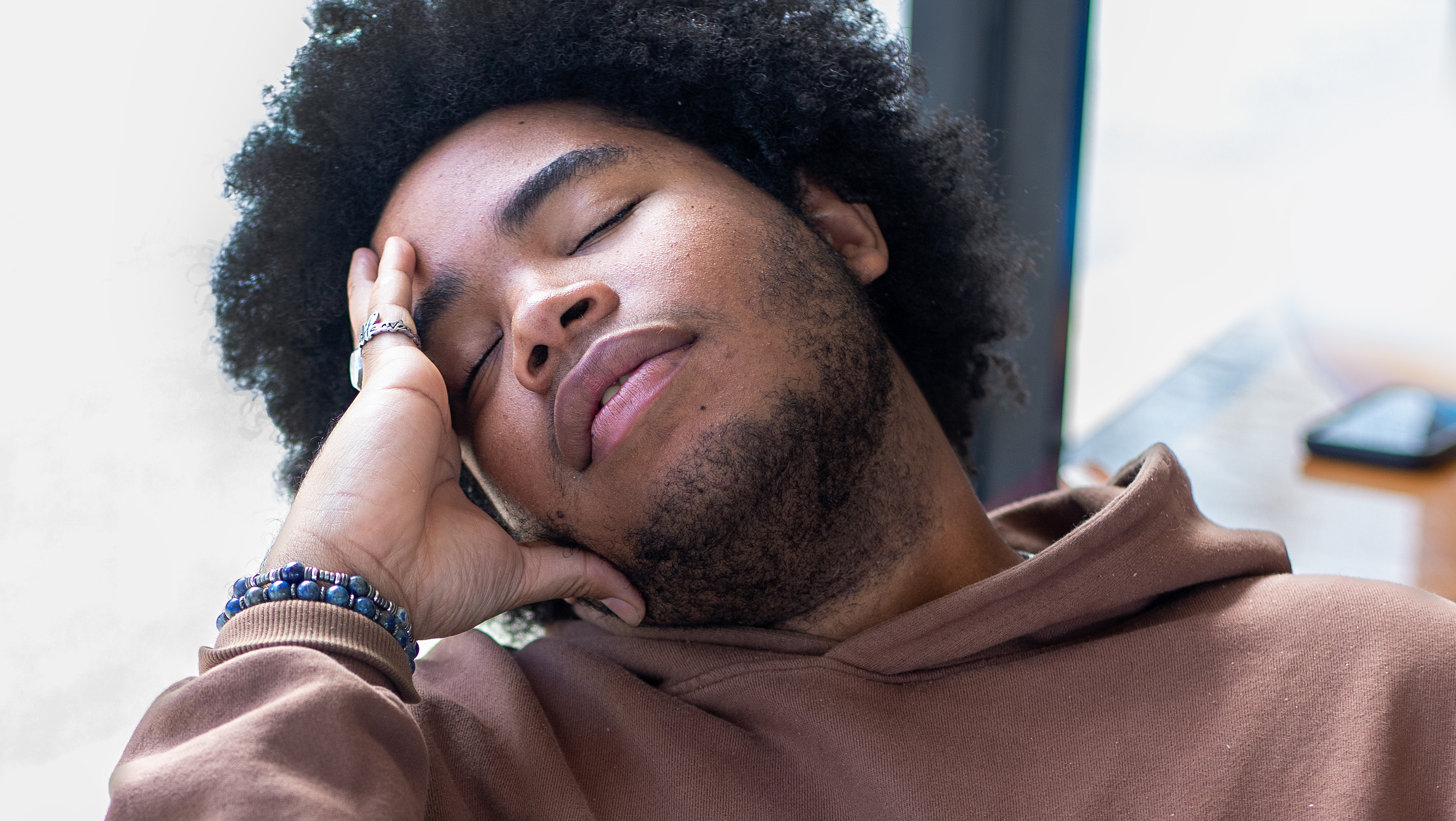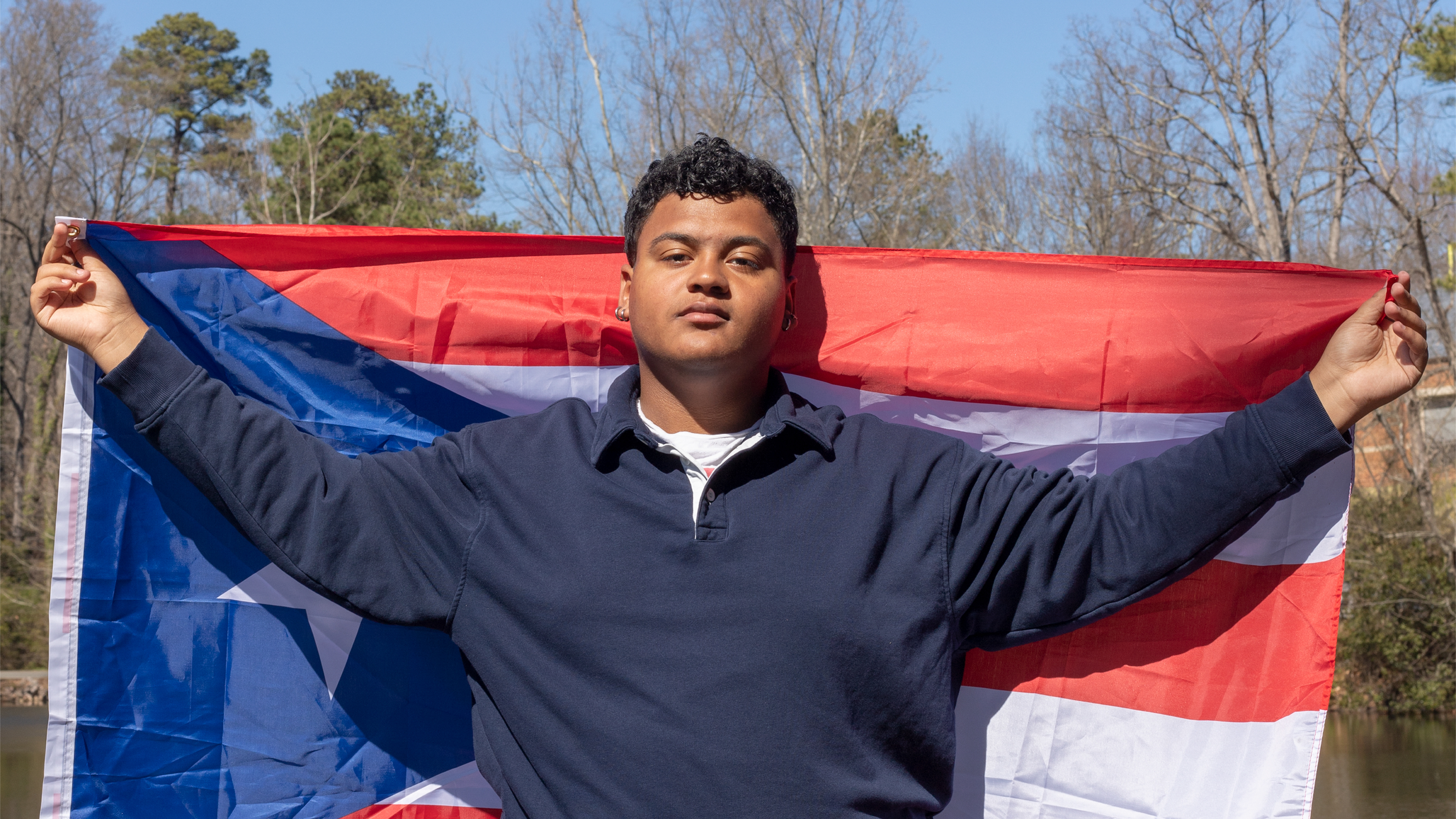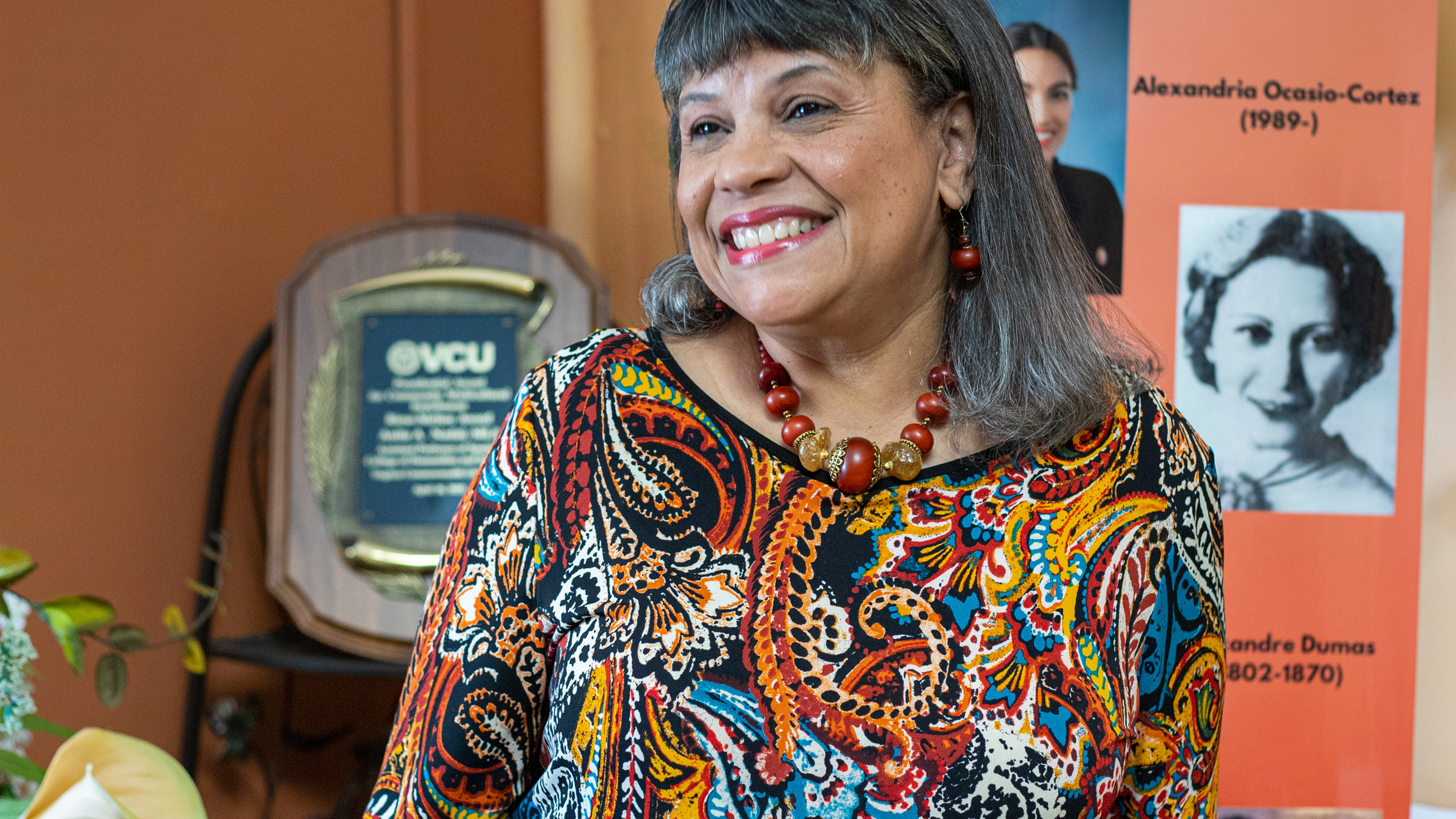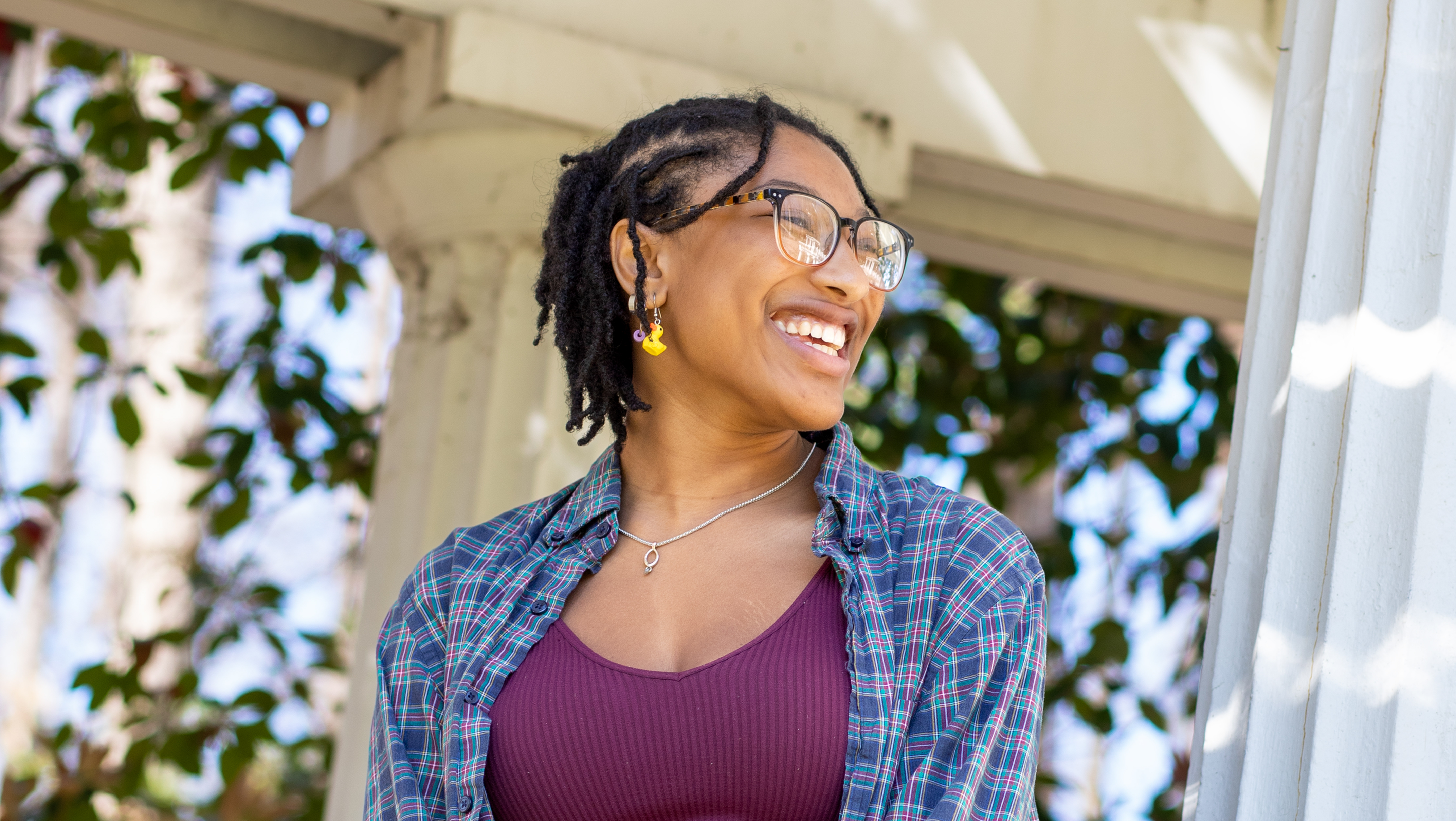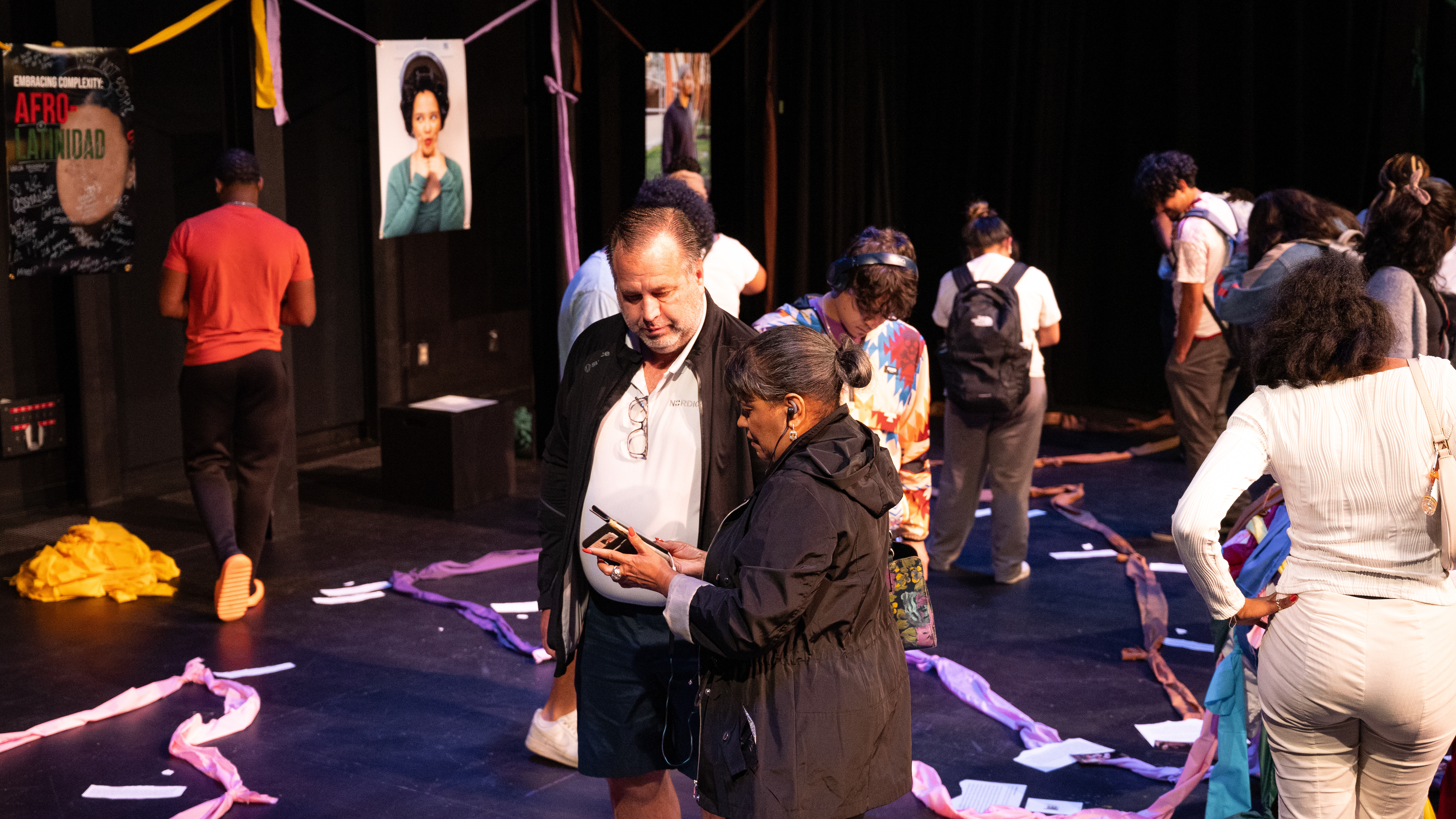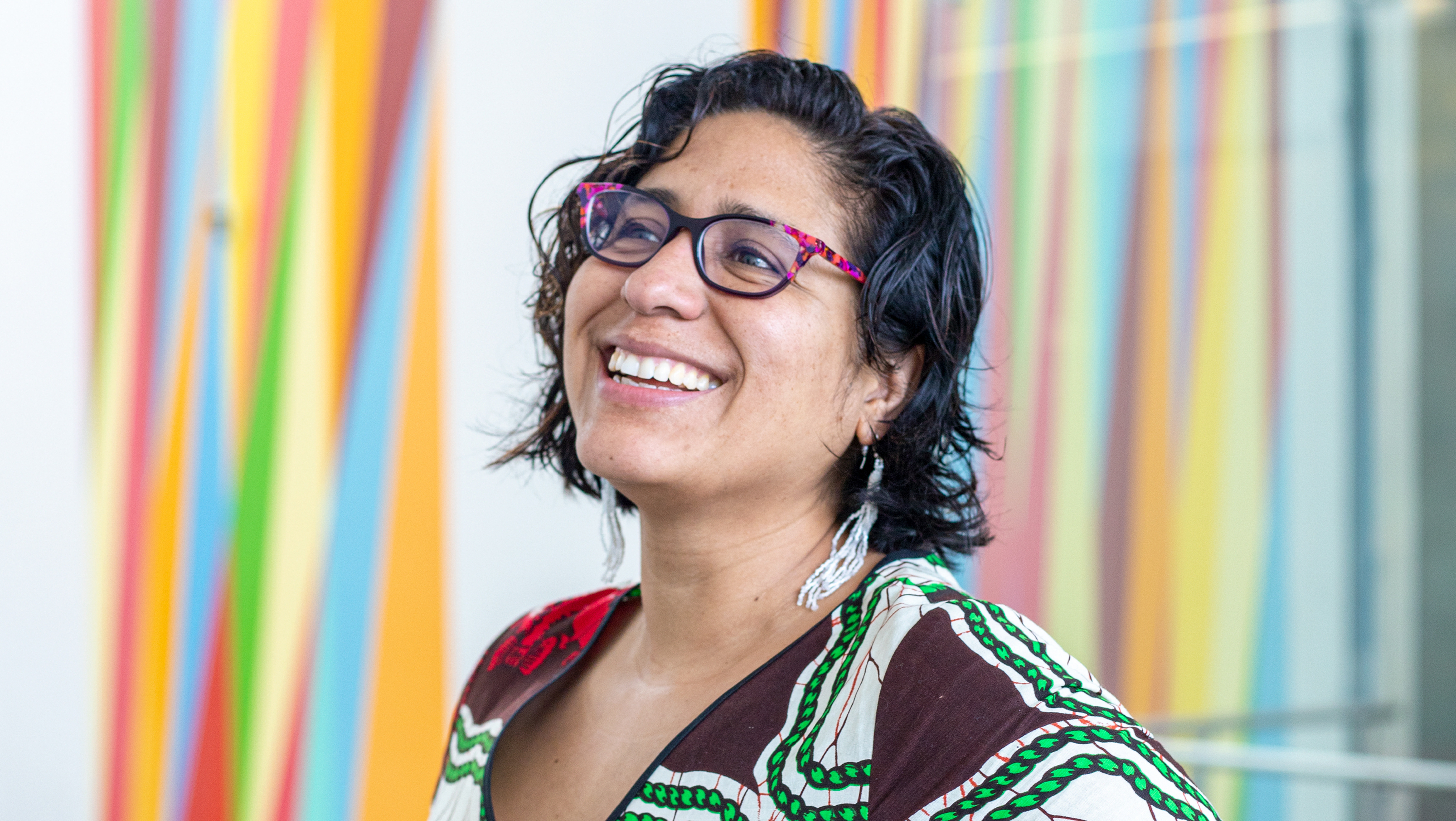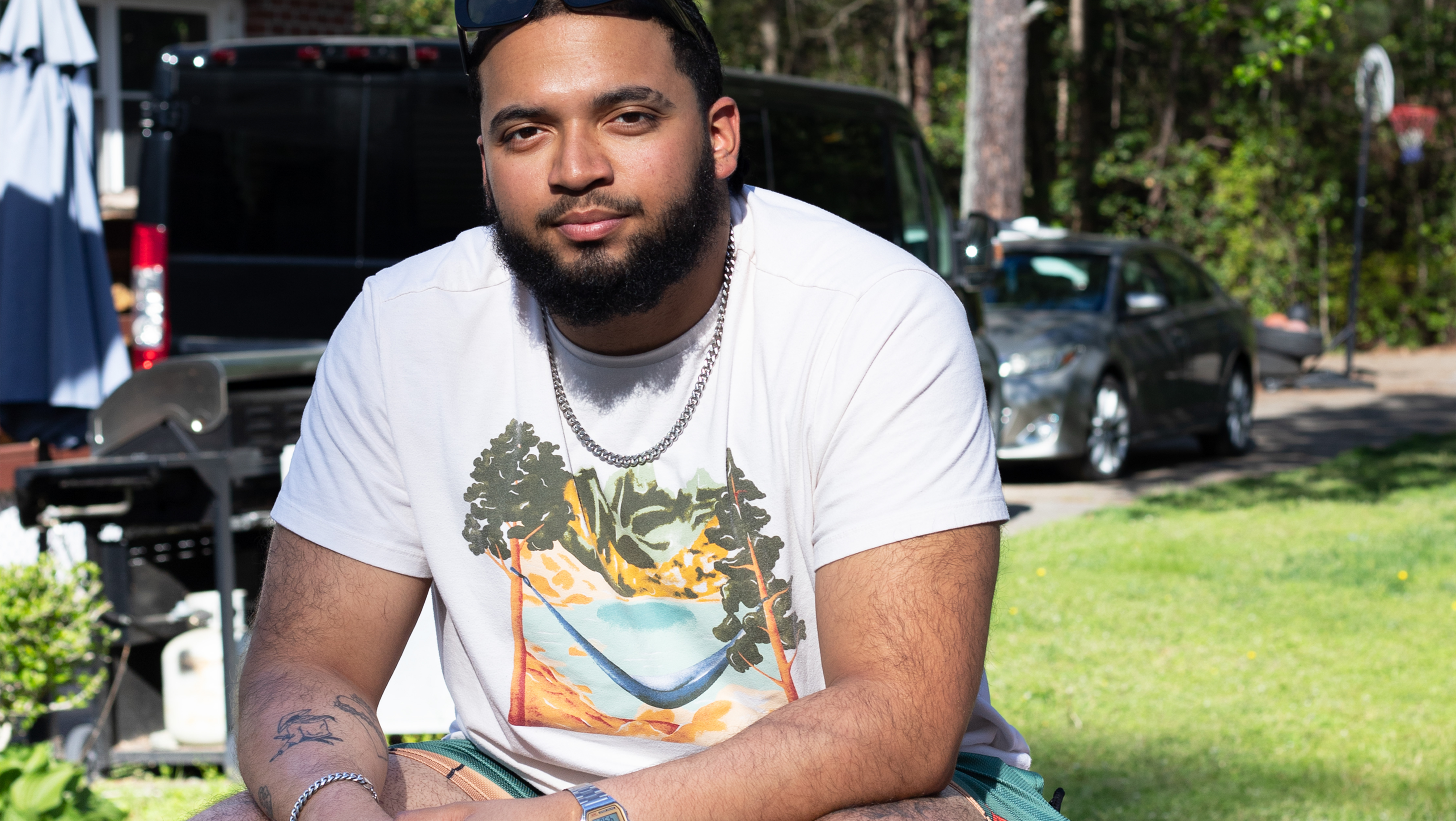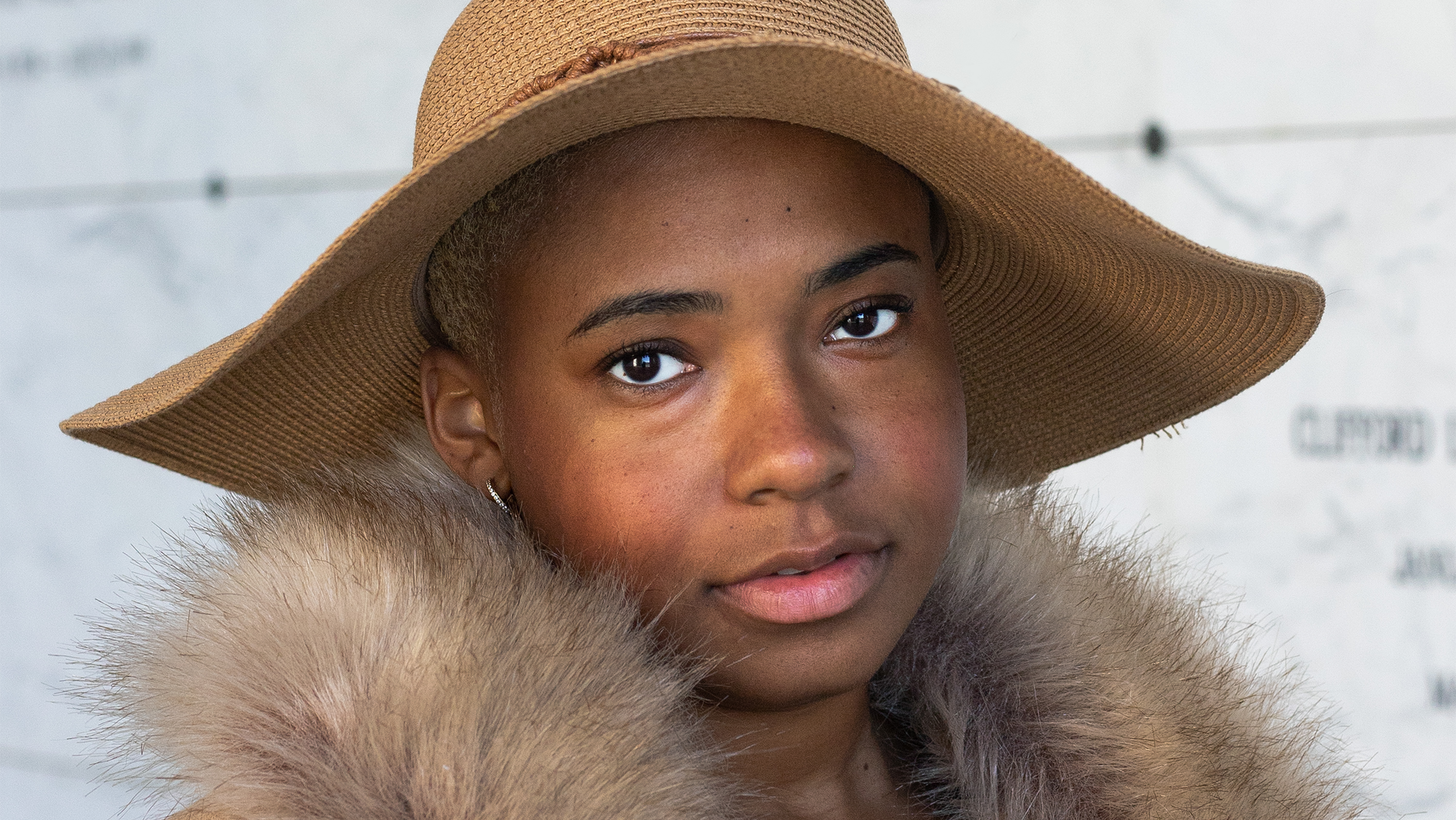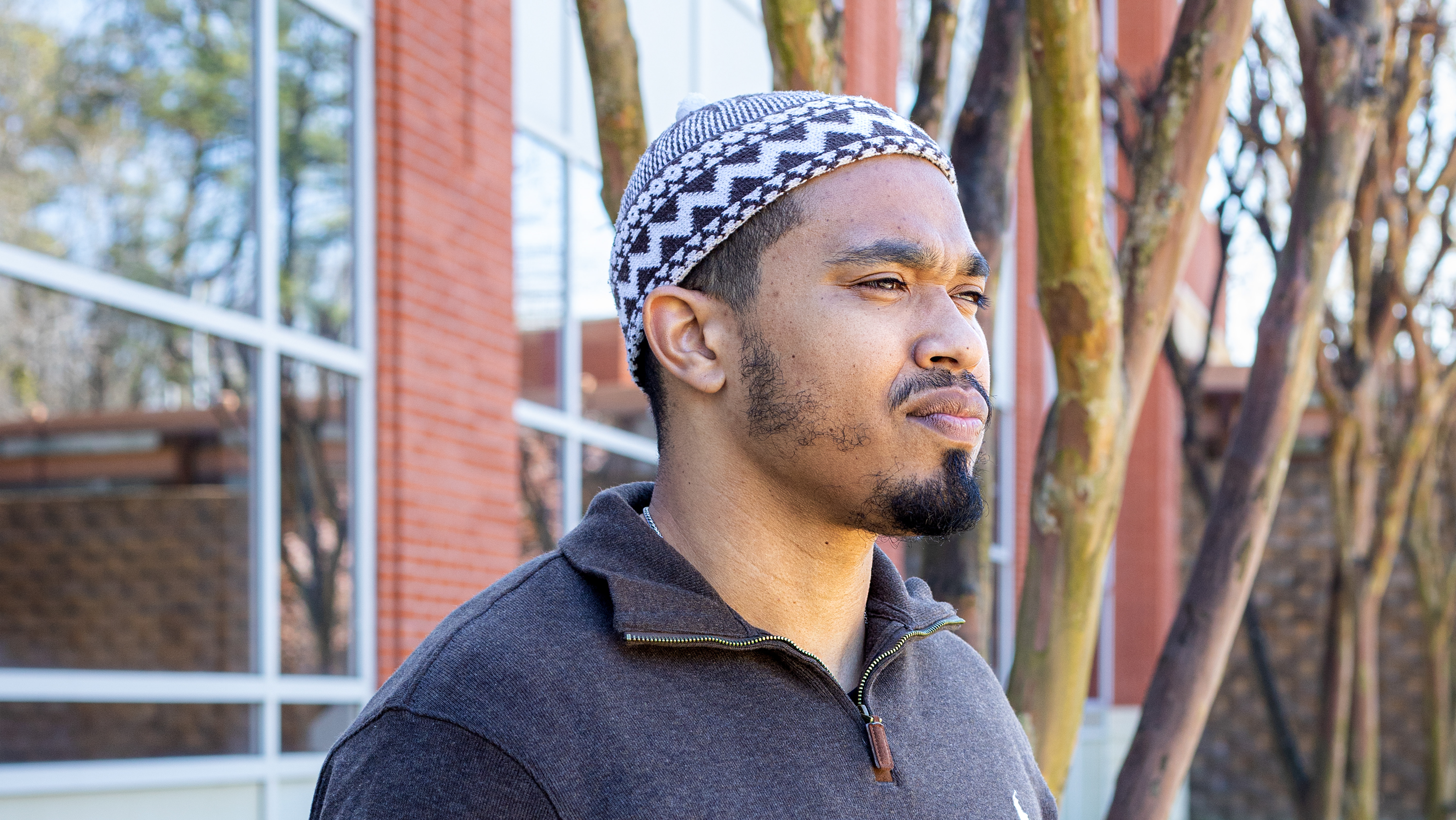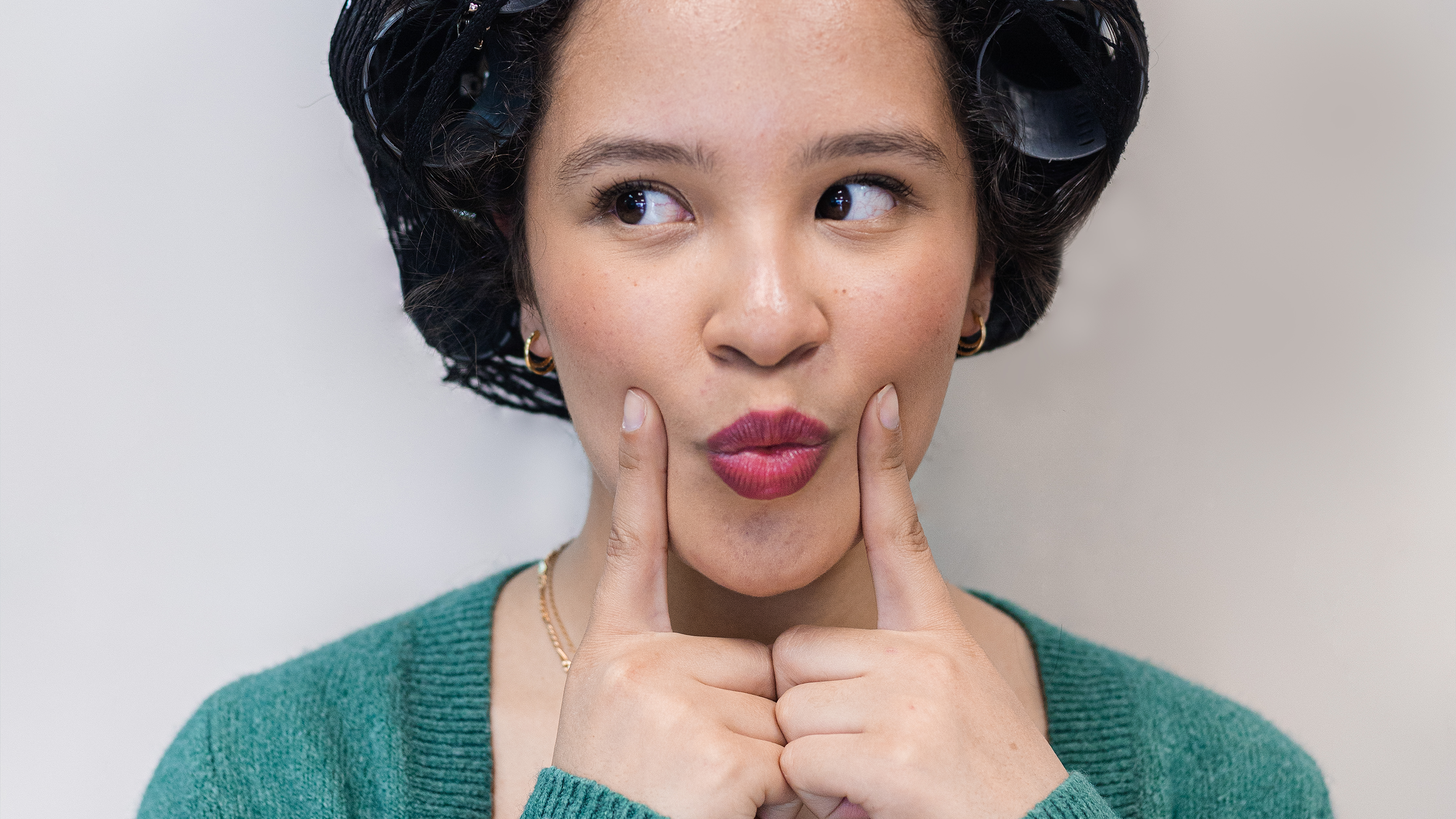I'm from Baldwin, New York and I am Dominican, Colombian, and Chilean. I have a lot of work to do personally with learning more about both my Dominican and Colombian culture, but say when you get to know me, you see the presence of the cultures in me, specifically through food… the tradition of me just dumping things in my coffee and eating it. My Dominican grandma introduced it to me, but all Colombians drink coffee straight from the womb, so when I was five I knew how to make coffee… oh and arepas!
They tried teaching me Spanish when I was really young but they didn’t really follow through because their first language was English, so they don't really talk it as much. I'm second generation, so if I really want to learn it myself if… One day I'll be fluent… but living at home it was really a beautiful blend of both my parent’s cultures…
"honestly my family is one big family..." Audio #1 (4:02 min)
So honestly, because of my dad I never identified as black. That was something that we never were because of the Dominican colorism aspect, and which I recently figured out stems from the Haitian revolution and the Dominican Republic’s relationship with Haiti. I never really associated with blackness until I realized that I was Afro-Latino and started telling my dad, like, we literally are like, stop avoiding it…
Audio #2 (4:04 min)
My education in Balwin really helped me start reassessing how I view my identity. Because of the way it was so pressured and socialized in my house, the way I viewed it was not the way so many other people were viewing me. So when I started identifying as Afro-Latino, my parents were kind of surprised… they were just like, really… oh, so you're African or you're black now. Not really productive conversations.
When I came to college I had the space to think about my Latinx experience. Last year I found Omar Apollo and I found myself connecting to him and his music because he has the same intersectional realities that I do, except he's Mexican. But the way he just represents himself, he just gives off so much confidence and that's something and someone that I want to be… so I started looking into Afro-Latinidad, I started coming out to more people as queer, and just growing more into my independence. I joined SOLS (Solidarity Organization for Latinx Students) and have been meeting so many different people that affirm that there's not one specific way to be Hispanic. You don't need to overrepresent this one. You should appreciate everything… my mom has always told me that, and I always believed that. My dad would say, “you should just tell people you're Dominican.”
Audio #3 (1:04 min)
… you think about how socialized the world has been and how we've really put ourselves into this perspective of Eurocentrism… how you have to check these boxes, and Latinos never really fit into these boxes…. I've learned a lot about like Latino struggles and how they have always put themselves through the ringer to suffer to get justice, like with hunger strikes and things like that… the birth of the Latino is through struggles, its nasty and sad but we have built so many beautiful things through it all… like my whole life there's always been that minority on minority battle, but at the end of the day really we're all so related… and it's like why do we need a movie like Wakanda forever to show us that?
Because I've grown to understand my Afro-Latinidad it’s helped me better gauge my other intersectionalities. I've found my people pretty fast and I think part of it has to do with the fact that I've been able to associate in a really good way and in a conscious way with my identities. And I love that, it's a big step! I feel so much more confident in myself and that's a slay.
Fun Fact: "... the last name Polonia is actually a made up last name..." (1:00 min)
